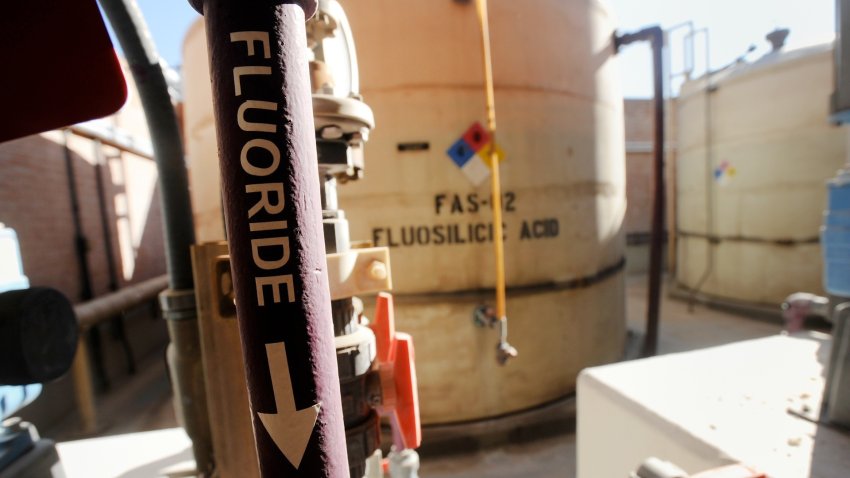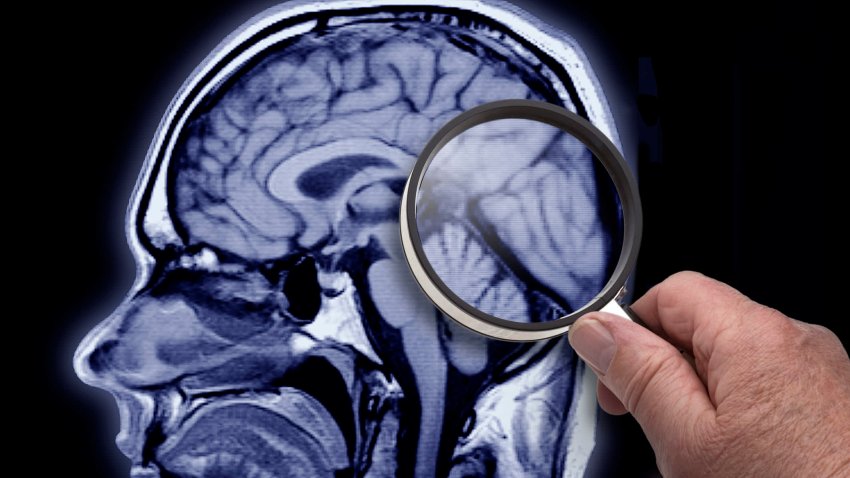-

Robert F. Kennedy Jr. health secretary nomination raises concerns among Bay Area healthcare professionals
President-elect Donald Trump’s nomination of Robert F. Kennedy Jr. to lead the Health and Human Services Department on Thursday has shaken the healthcare community.
-

Robert F. Kennedy Jr. health secretary nomination raises concerns
President-elect Donald Trump’s nomination of Robert F. Kennedy Jr. to lead the Health and Human Services Department on Thursday has shaken the healthcare community. Gia Vang reports.
-

What to know about Robert F. Kennedy Jr., Trump's pick for health secretary
Robert F. Kennedy Jr. has promoted claims about vaccines that contradict the overwhelming consensus of scientists.
-

Survey finds 2 in 5 Americans worry about overeating over the holidays
A new survey from Orlando Health found 39% of American adults worry about how much they will eat over the holidays, but dietitians say fears of weight gain or other negative effects are overblown.
-

Study finds beer drinkers have less healthy lifestyles than wine drinkers
A study from the American Association for the Study of Liver Diseases found beer drinkers usually have less healthy lifestyles than drinkers who prefer wine, liquor or a combination of alcohol types.
-

More women seek testosterone therapy, prompted by influencers, doctors say
With the rise of telemedicine and testosterone replacement clinics opening up across the country, access to the drug has never been easier.
-

Will fluoride go away when Trump takes office?
Dentists say fluoridated water was one of the most significant public health advances in recent memory. The incoming administration may not see it that way.
-

Why is there fluoride in drinking water?
Fluoride is added to drinking water to prevent tooth decay and reduce other dental-related illnesses, according to the American Dental Association and CDC.
-

Diagnosed with disease he studied, Stanford doctor puts his personal story at center of new class
Dr. Bryant Lin is hoping his cancer journey can be a teaching moment for future physicians.
-

Diagnosed with disease he studied, Stanford doctor puts his personal story at center of new class
Dr. Bryant Lin is hoping his cancer journey can be a teaching moment for future physicians. Garvin Thomas reports.
-

Clinical trials sparking hope for Alzheimer's patients: ‘Holding my own'
A clinical trial is testing whether an existing drug could benefit patients with Alzheimer’s disease, in hopes of making symptom-improving medication more accessible for people experiencing mild cognitive impairment.
-

New stents for infants mean kids could avoid series of open heart operations
For decades, when babies with congenital heart defects needed stents, doctors would modify ones meant for adults so they would fit into much smaller hearts.
-

Learn about the many health benefits of honey
Did you know that when a queen bee is born, she sings to find out if she’s the only royal in the hive? California Live correspondent Berlin meets up with Niki from Mike & Niki’s Honey Company in San Francisco to learn why honey is the bee’s knees. From its many healing properties to a delicious addition to your home-cooked...
-

Why some doctors see a downside to notifying women about dense breasts
Due to a new FDA rule, women 40 and older in every state are now receiving letters about their breast density along with their standard mammogram results.
-

What are PFAS?
Commonly referred to as “forever chemicals,” PFAS are found in many everyday products and even inside our bodies. So what are they?
-

Brett Favre's Parkinson's diagnosis reignites questions about football's link to brain disease
Research suggests that concussions from football can raise the risk of Parkinson’s and other neurodegenerative diseases.
-

Black women are more likely than white women to die of all types of breast cancer
Black women are more likely than white women to die from even the most treatable types of breast cancer, a study published Tuesday in the Journal of Clinical Oncology found.
-

New technology for Americans with heart defect
A company on the Peninsula has developed a technology which could save the lives of thousands of Americans with a heart defect.
-

Syphilis is at its highest levels since the 1950s. Here's how experts are trying to fix that.
Doctors and public health workers across the U.S. are racing to develop innovative and unconventional strategies to test and treat people for the infection.
-

Their loved ones died after receiving pig organ transplants. The families have no regrets.
Four people have received hearts or kidneys from pigs. Some of their relatives recount a roller coaster of hope and uncertainty.

